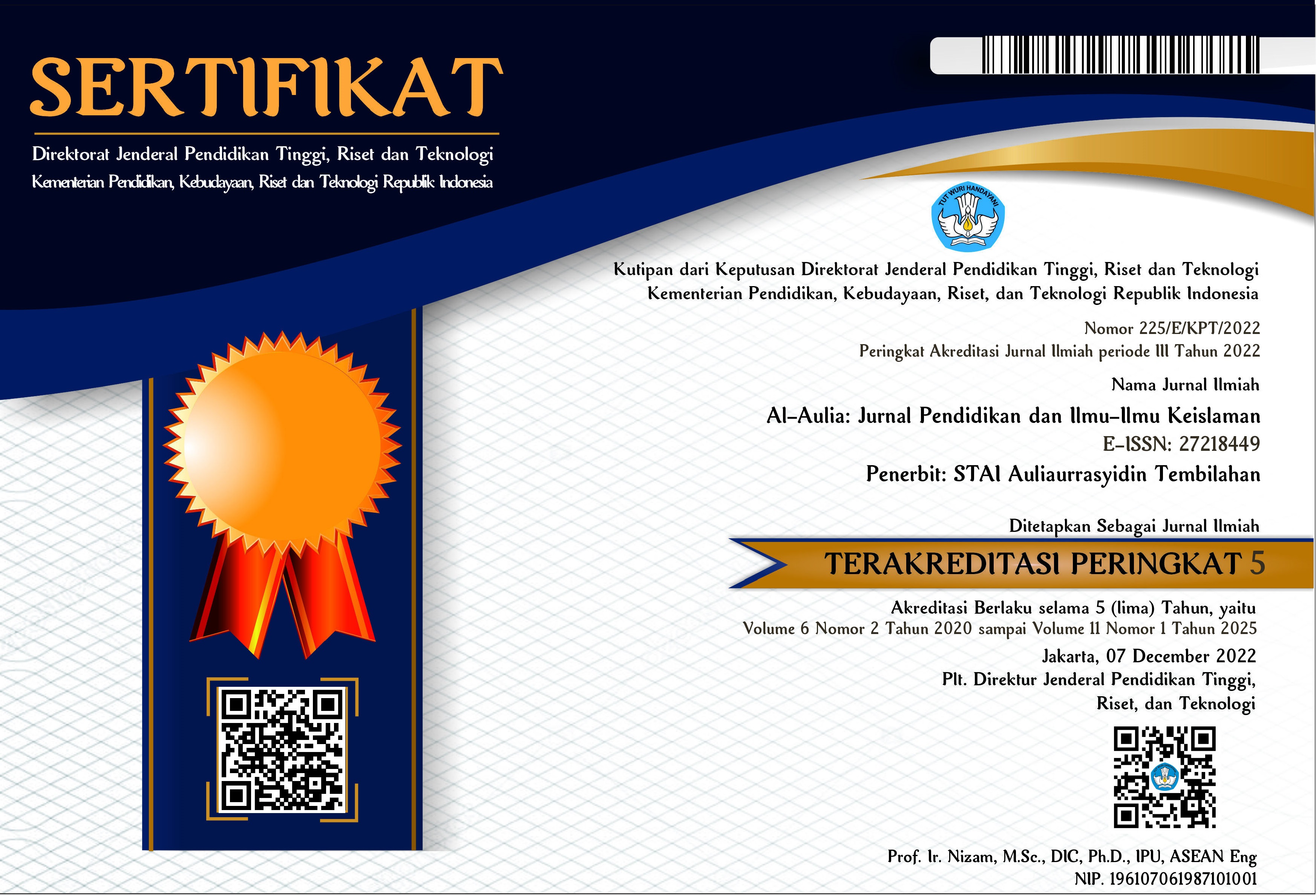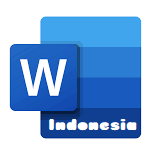Pemikiran K.H Ahmad Dahlan dan K.H Hasyim Asy'ari dalam Bidang Pendidikan
Keywords:
Thought, KH. Ahmad Dahlan, K.H Hasyim, EducationAbstract
The results of the incredible thoughts of K.H Ahmad Dahlan have influenced on the history of the world of education in Indonesia, especially in the field of Islamic Education. Islamic education has a major role in determining the fate of the nation. This state of affairs made him think and reflect while looking for a solution. His ideals is through the Islamic religious education, he will be able to give birth to the new man, who is able to perform as an intellect scholar that is a Muslim who has the determination and knowledge as well as strong physically and spiritually. In actualizing his ideal, K.H Ahmad Dahlan (the founder of Muhammadiyah) had combined the two systems of philosophy of education. In order to prevail the systems, he performed two actions at once namely giving religious instruction in the Dutch school which was secular and setting up schools where religious instruction and general lessons are equally taught. K.H Hasyim asy'ari is a figure of scholars that contributes to the development of science in Indonesia. His thinking is emphasized on a concept of education which discusses ethics in the search for knowledge. Demanding science is the work of religion so that all people who seek it should pay attention to ethics. In the search for knowledge and religious activities, both of which must be accompanied gentlemanly behavior of al-akhlaqul karimah.
References
Abuddin Nata, (2005). Tokoh-Tokoh Pembaharuan Pendidikan Islam Di Indonesia, Jakarta: PT Raja Grafindo Persada.
Abdul Munir Mulkhan, (1990). Warisan Intelektual K..H Ahmad Dahlan dan Amal Muhammadiyah, Yogyakarta: PT Percetakan Persatuan.
Abdul Mu’ti, (1999). Konsep pendidikan K.H Ahmad Dahlan, dalam Ruswan Thoyib dan Darmu’in, Pemikiran Pendidikan Islam Kajian Tokoh Kalsik & Kontemporer, Semarang: Pustaka pelajar.
Abdurrahman Mas’ud, (2004). Intelektual Pesantren, Yogyakarta.
Adi Nugraha, (2010). K.H Ahmad Dahlan : Biografi Singkat (1869-1923), Jogyakarta: Garasi House of Book
Ahmad Muhibbin Zuhri, (2010). Pemikiran K.H Hasyim Asy;ari tentang ahl al-Sunnah wa al-Jama’ah, Yogyakarta: Khalista.
Ahmad Sarwono bi Zakir, (2013). K.H R. Ng. Ahmad dahlan : Pembaharuan, Pemersatu dan pemelihara Tradisi Islam, Yogyakarta: Mitra Pustaka Nuarni.
Badiatul Raziqin, dkk, (2009). 101 Jejak Tokoh Islam Indonesia, Yogyakarta: e-Nusantara.
Hamdan, (2009). Paradigma Baru Pendidikan Muhammadiyah, Jogjakarta: ARR RUZZ Media.
Hasbullah, (1999). Kapita Selekta Pendidikan Islam, Jakarta: PT Raja Grafindo Persada.
Herry Sucipto, (2010). K.H Ahmad Dahlan: Sang Pencerah, Pendidik, dan Pendiri Muhammadiyah, Jakarta Selatan: Best Media Utama.
Husain Al Habsy, (1977). Kamus Al Kautsar, Surabaya: Assegaf.
Jalaludin, (2003). Tiologi Pendidikan, Jakarta: Bumi Aksara.
Lathiful Khuluq, (2000). Kebangkitan Ulama, Biografi K.H Hasyim Asy’ari, Yogyakarta: LKIS.
Louis Makluf al Yusai, kamus al Munjid fi al lughah wa al A’lam.
M.Abdul Quasem, (2008). Etika Majemuk di Dalam Islam, Bandung: Pustaka.
Muhammad al-Ghazali, (2005). Ihya Ulumuddin, Bairut Libanon:
Ramayulis, Samsul Nizar, (2011). Filasafat pendidikan Islam : telaah Sistem pendidikan Pemikiran para tokohnya, Jakarta: kalam Mulia.
Suwedi, (2003). Sejarah dan pemikiran Pendikan Islam, Jakarta: PT Grafindo Persada.
Shafique Ali Khan, (2005). Filsafat Pendidikan al-Ghazali, Bandung: Pustaka setia.
Downloads
Published
Issue
Section
License
Authors who publish with this journal agree to the following terms:
1. Copyright on any article is retained by the author(s).
2. The author grants the journal, right of first publication with the work simultaneously licensed under a Creative Commons Attribution License that allows others to share the work with an acknowledgment of the work’s authorship and initial publication in this journal.
3. Authors are able to enter into separate, additional contractual arrangements for the non-exclusive distribution of the journal’s published version of the work (e.g., post it to an institutional repository or publish it in a book), with an acknowledgment of its initial publication in this journal.
4. Authors are permitted and encouraged to post their work online (e.g., in institutional repositories or on their website) prior to and during the submission process, as it can lead to productive exchanges, as well as earlier and greater citation of published work.
5. The article and any associated published material is distributed under the Creative Commons Attribution-ShareAlike 4.0 International License







